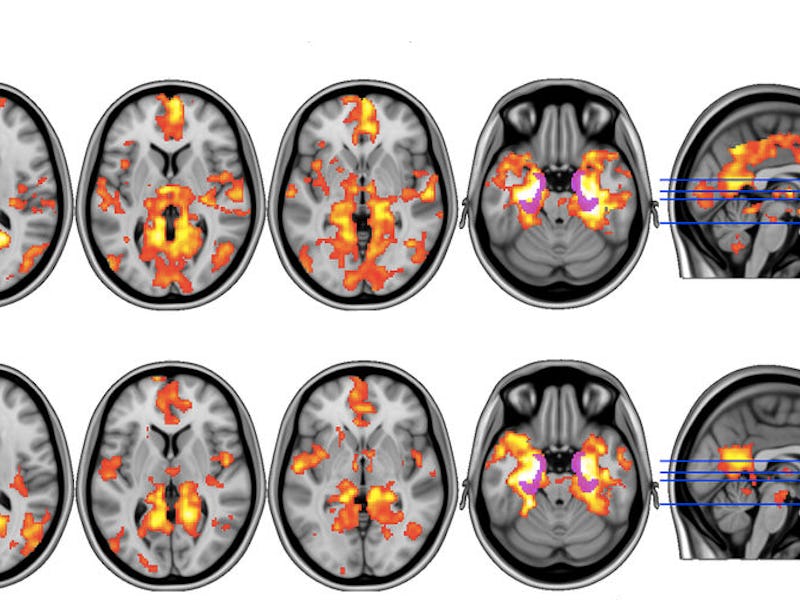Psilocybin in Magic Mushrooms Hits Brain's 'Reset' Button, Say Scientists
Depressed patients reported feeling a 'kick start'.

Magic mushrooms are in the midst of a brand makeover, thanks to scientists who are constantly finding ways they can be used to treat mental illness. But the latest discovery about the drug, published Friday in Scientific Reports, shows it has capabilities that, to patients suffering from the most serious forms of depression, may seem a bit magical indeed. They report that psilocybin, the active ingredient in the hallucinogenic fungus, “resets” the parts of the brain involved in depression.
In a small study that was the first of its kind, the Imperial College London team, led by the school’s Head of Psychedelic Research Robin Carhart-Harris, Ph.D., used brain imaging to observe changes in the brains of depressed people who were dosed with psilocybin.
“Several of our patients described feeling ‘reset’ after the treatment and often used computer analogies,” said Carhart-Harris in a statement. “For example, one said he felt like his brain had been ‘defragged’ like a computer hard drive, and another said he felt ‘rebooted’.”
He continued by explaining that the drug gives people the “temporary ‘kick start’ they need to break out of their depressive states and these imaging results do tentatively support a ‘reset’ analogy. Similar brain effects to these have been seen with electroconvulsive therapy.”
Before and after images of the brain after a dose of psilocybin show significant changes in blood flow.
This feeling of “resetting” seems to be linked to psilocybin’s ability to reduce blood flow to certain parts of the brain immediately following treatment. In the study, the 20 participants involved each received a 10-milligram dose of psilocybin one week, followed by a 25-milligram dose the next. On the days before and after they received the higher dose, their brains were scanned using a functional magnetic resonance imaging (fMRI) device, which visualizes the flow of blood in different regions in the brain.
An analysis of those scans showed that psilocybin changed blood flow in the amygdala, the part of the brain that’s thought to deal with emotions, like stress and fear.
In their article, the researchers explain that these effects are akin to what previous studies on the psychedelic experience have described as “ego-dissolution” — the feeling of losing your sense of self. When people experience this, what’s actually happening in their brain is that it’s entering an “entropic brain state,” which is when the connectivity between all the small regions that make up the brain is compromised but the connectivity of the brain as a whole is enhanced. Even more important is what comes after this experience: After the brain breaks itself down — or “resets” — it seems to reconfigure all of its connections, which is what’s thought to the feeling of being “rebooted.”
Their study, though small, is another important step in finding legitimate medical uses for psilocybin — and, more broadly, helping rebrand hallucinogens as a class of compounds as having therapeutic potential. They admit in the paper, however, that because their study involved so few people, their results shouldn’t be seen as conclusive. There’s plenty we still don’t know about how psilocybin helps alleviate the symptoms of depression — and what the potential downsides are — so they warn people against trying to self medicate.
If you liked this article, check out this video about LSD’s effects on the brain.